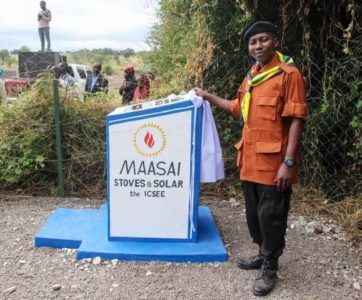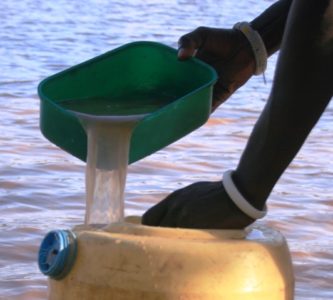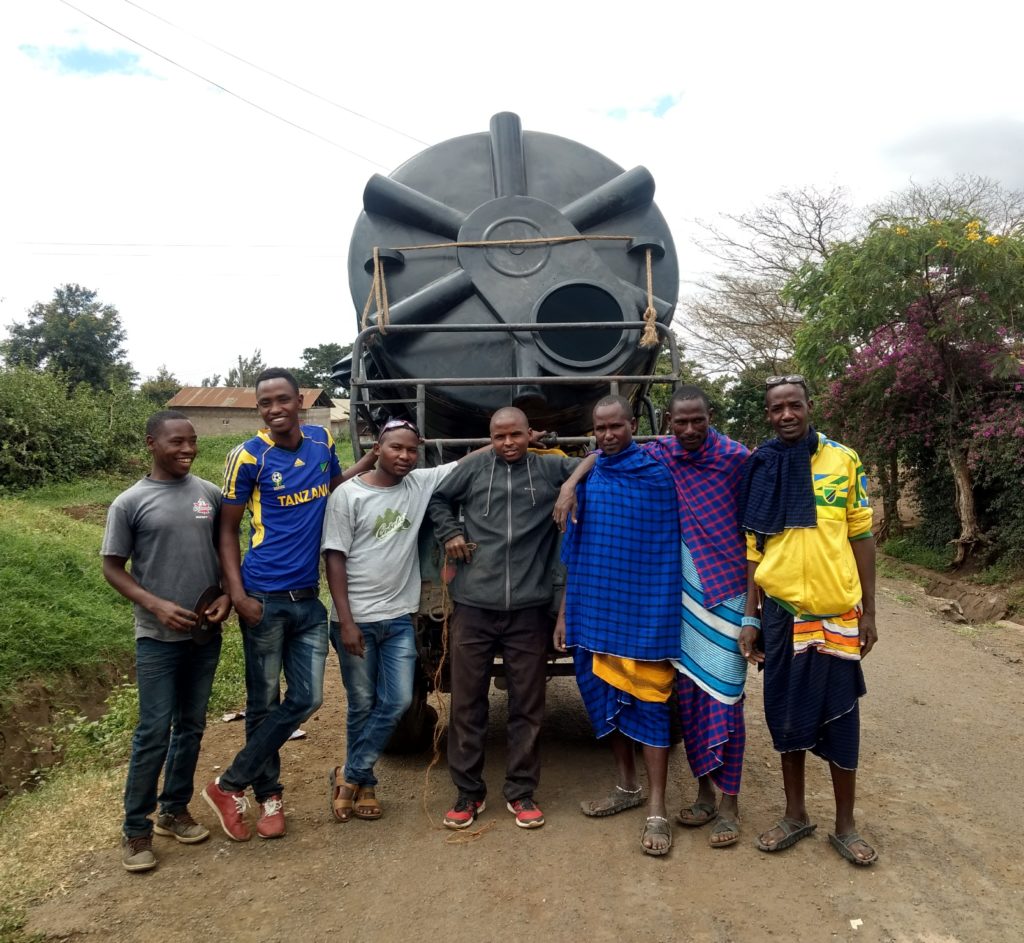 On June 17, the Uhuru Torch came through Monduli District, visiting two of the International Collaborative action centers. This represents the fifth time ICSEE has received this honor.
On June 17, the Uhuru Torch came through Monduli District, visiting two of the International Collaborative action centers. This represents the fifth time ICSEE has received this honor.The Torch recognized the ICSEE water sanitation system in the village of Mbuyuni, one of our three pilot water projects, as well as our factory for supplemental cow fodder.
We appreciate the visit of the Uhuru Torch to our water system. It focused much more attention of the Regional and District Leaders on the success of this approach.
As you may know, for some time, we’ve been seeking funding from these local leaders to scale up this water sanitation work. We hope they will now see funding as a way to achieve health goals we share, especially for children who are the most vulnerable to water-borne illness.
Testing results

As part of the Uhuru Torch preparations, the national Tanzanian government required serious laboratory testing by the Ministry of Water. They tested the polluted pond water coming into our system, and the water coming out of the faucets after treatment.
Their studies confirmed that our system water is safe and of excellent quality. The studies also demonstrated the E.coli pollution of the ponds to be as high as we had found. This dangerous situation had inspired the water project from the outset.
Based on these findings, in their report, the Ministry of Water now recommends:
“Establishment of chlorination units is recommended for all water supply schemes.”
Health today can’t wait
Together with local communities, we did our thinking about water safety “inside the box” where simple, well-known, tried and true solutions live. 

For little cost, and regardless of what the water solution might be in a decade, right now, we’re bringing better health to the families using this water.
There may be improved solutions to water issues in the future. Worldwide, many groups recognize the seriousness of these illnesses.
Deep wells, water piped from distant mountains, and clever innovative water treatment approaches are in the air. These approaches are promoted by these groups, who deserve respect for their priorities and efforts.
But in the meantime, children’s health today can’t wait for the next ideal solution to water quality that may be a long time coming. We know that chlorination works all over the world.
We have found a way to chlorinate water right to the point where rural Maasai mothers collect it for their families–now and for the foreseeable future. We are so gratified that this is now recognized by the Tanzanian government.
We are grateful for this recognition, and the generous support from all who make it possible.
Congratulations to all who contributed creativity, effort, and resources.